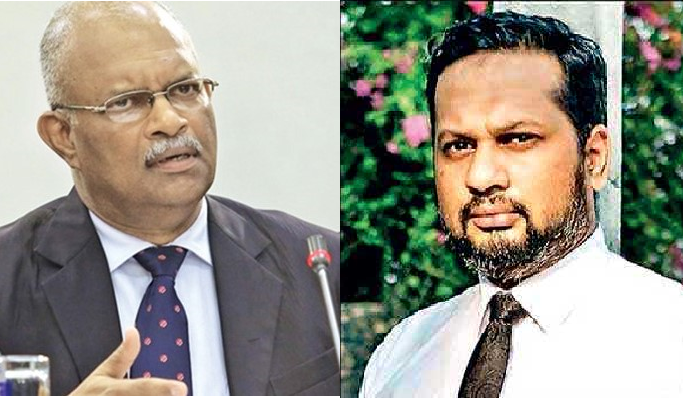The Bishops of the Church of Ceylon has called on both the Government and the public to critically reflect on the status of human rights in Sri Lanka and take practical steps to ensure all people are treated with dignity in the year ahead.
The full text of the statement released to mark Human Rights Day, which fell on 10 December, is given below:
Every year, on 10 December, we focus our minds on and, renew our commitment to, the respect and importance of the protection of human rights: human rights that are universal, part of the norms of the United Nations, and recognised within all the religious traditions of the world.
The theme for this year, given the COVID-19 pandemic, is Recover Better: Stand Up for Human Rights. This highlights the important point that respect for human rights must be central to the pandemic recovery effort, infusing the response, whether with regard to the strict community measures to halt its spread, providing economic assistance to those particularly affected by lockdowns and restrictions such as the daily wage earners and small businesses, the treatment of those who are ill, respecting the dignity of those who die and, protection for those at the frontlines of treating the sick. In the months ahead we have the task of ensuring that the vaccines are made available equitably to all those who need it throughout the world.
Human Rights Day 2020 is the moment to assess our nation’s progress in terms of respect for human rights at a more general level. As a nation, we must do this with honesty and in a spirit of self-criticism. The protection of human rights is inextricably linked with Constitutionalism, Democracy and the Rule of Law. There are legitimate concerns that, following the adoption of the 20th Amendment to the Constitution, there are inadequate safeguards to ensure the independence of the Judiciary and important independent public commissions such as the Human Rights Commission and the Elections Commission. We hope that these shortcomings will be addressed by the committee appointed to draft a new Constitution.
A recent example of the inter-relationship that exists between the COVID-19 pandemic, human rights, constitutionalism and the Rule of Law is the fundamental rights application filed by 11 petitioners representing the Christian and Muslim communities challenging the policy of enforcing the cremation of persons who died of COVID-19 despite WHO guidelines and international best practice indicating that there is no evidence to suggest that burial constitutes a public health risk. One would have thought that the issues raised a prima facie case that warranted closer examination and judicial review. It is surprising and disappointing that the Supreme Court thought otherwise.
Another example that highlights the existence of serious human rights concerns in the context of the pandemic is the recent use of lethal force on prisoners at the Bogambara and Mahara prisons. The State has both a moral and legal obligation to protect the rights of prisoners, including their right to health and safety while they are incarcerated.
This Human Rights Day we are particularly concerned about the human rights of two distinguished professionals who have been unacceptably deprived of their freedom and dignity. Hejaaz Hisbullah, a leading young lawyer and alumnus of one of our leading church schools, was arrested on 14 April 2020 and is detained without charges or trial and no judicial supervision.
Shani Abeysekera, the former Director CID, was arrested in August and detained at the Mahara prison. Despite him contracting COVID-19 and suffering a heart attack and other medical conditions, there is no compliance with the directives of the Human Rights Commission that he be transferred to a hospital for much needed treatment. These two examples demonstrate that there are serious human rights concerns in the country. We request the authorities to address these concerns as a matter of urgency.
May we all, this Human Rights Day, whatever our differences – political, religious, ethnic or gender – critically reflect on the state of human rights in our country, acknowledge the shortcomings that may exist in this regard, and resolve to take practical steps to reaffirm our common humanity and ensure that all people are treated with dignity and respect. Let us make a united commitment to stand up for human rights in the year ahead.
Courtesy Daily FT.
